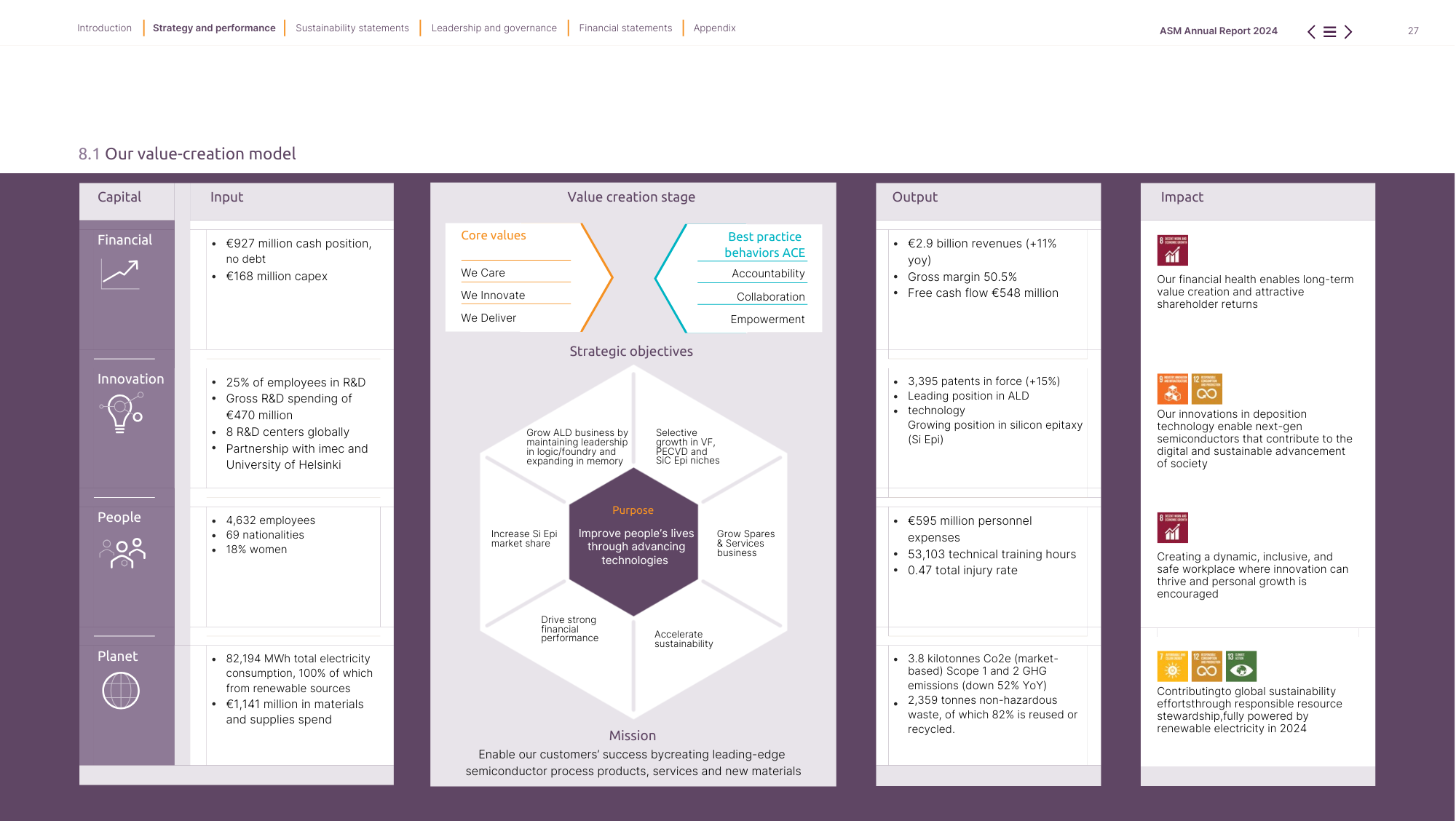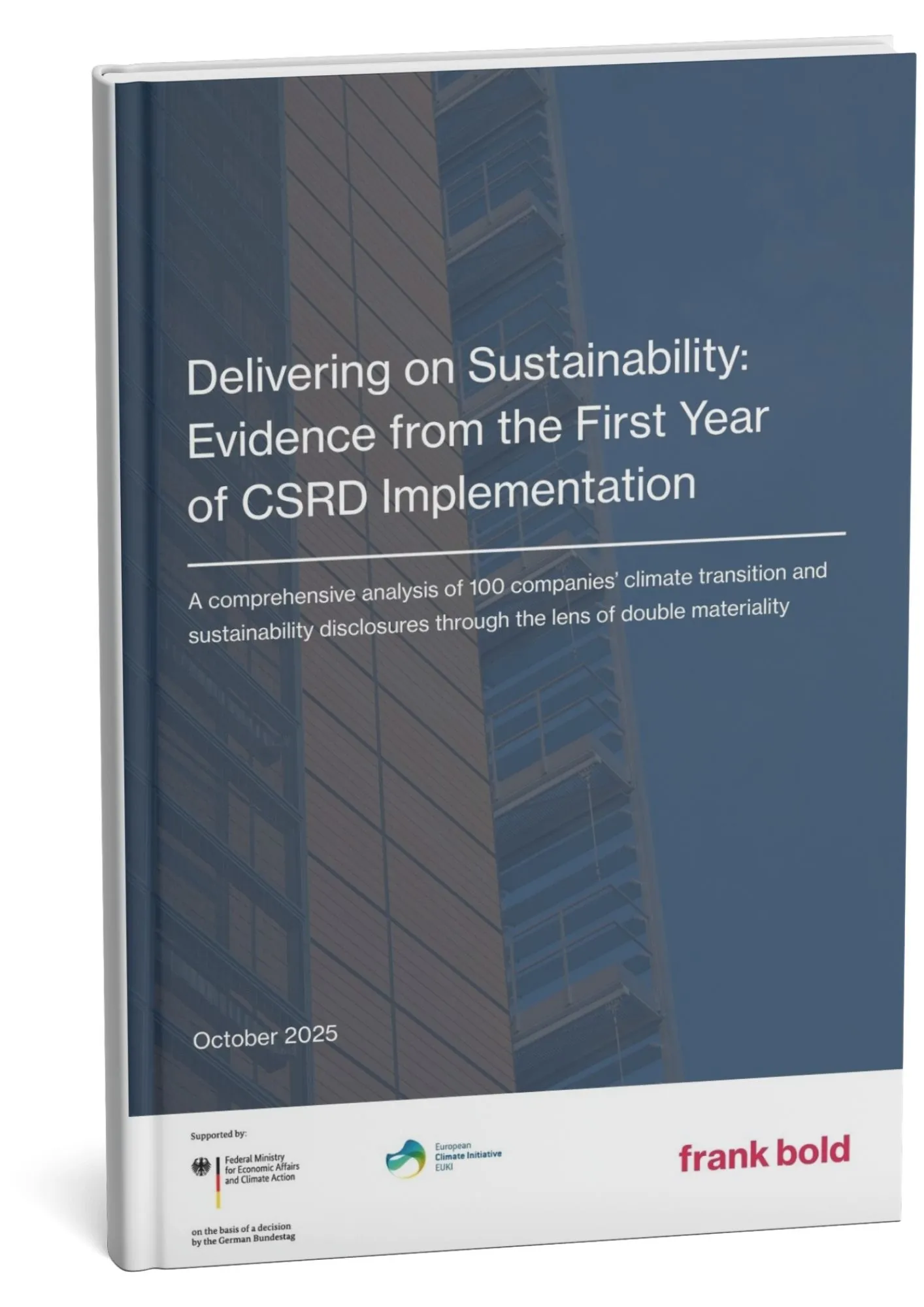The expectations for the first reports under the new legislation were high, as they were supposed to show others what ESG reporting should look like in practice under the new rules. However, the aim of this article is not to assess whether the companies succeeded, but rather to present examples of good practice that can serve as inspiration for preparing future sustainability reports.
For our analysis, the results of which we presented at the 3rd Czech & Slovak Sustainability Summit, we selected four companies from different industries and parts of Europe: the Danish energy company Ørsted, the Swiss beverage group Coca-Cola, the Slovak Tatra Bank, and the Dutch semiconductor manufacturer ASM, which we will focus on more closely in this article.

One of the companies we examined more closely in our analysis of ESG reports is the Dutch semiconductor manufacturer ASM. It was included primarily as an illustration of the phenomenon where reporting practices outpace legislation. Although ASM belongs to the so-called first wave of companies subject to the new European ESG reporting requirements, its sustainability report has not yet been prepared in accordance with the ESRS standards.
The main reason for this discrepancy is the fact that the Netherlands has not yet transposed the CSRD Directive into its national legislation. This means that Dutch companies are not yet legally required to publish sustainability reports in accordance with the new European standards. ASM openly points out this fact right at the beginning of its ESG report.

The ASM company’s report itself, including graphical elements, consists of only 37 pages. The company prepared it in a clear and comprehensible manner; however, the report does not follow the structure defined by the ESRS standards. The company has previously conducted a double materiality analysis, the results of which are presented visually (on page 61 of the report, see below). However, it does not specify the exact threshold values used to assess the materiality of impacts, risks, and opportunities.
.png)
Interestingly, despite the absence of any legal obligation, ASM published its ESG report voluntarily. Moreover, the report presents its decarbonization roadmap – a clear plan outlining timelines, categories of carbon footprint, and specific measures for emission reduction.
ASM’s approach can be inspiring for other companies that want to be prepared for the new European regulation in advance. Voluntarily publishing a sustainability report can thus serve not only as a demonstration of a responsible attitude, but also as a strategic advantage at a time when ESG reporting requirements are only beginning to take full effect.
.png)
You can read more about how other companies approach this topic in our previous articles – the full analysis covering the Swiss holding company Coca-Cola and the Danish energy company Ørsted, which we discussed last time, as well as Slovakia’s Tatra banka and the Dutch company ASM, is also available on the Ekonews platform.
At Frank Bold Advisory, we help you navigate the current requirements of the European CSRD directive as well as the ongoing changes brought by the so-called Omnibus regulation. We guide you through the preparation of an effective ESG report in line with ESRS standards – whether you're just starting out or looking to improve existing processes.
We work with both major market players and smaller companies within supply chains – from initial analysis and selection of key indicators to final reporting.

Discover how European companies are managing ESG reporting. The new study by Frank Bold’s Responsible Companies team summarizes the first wave of sustainability reports from one hundred major European companies and shows that reporting under the CSRD provides valuable data for decision-making and is becoming an effective tool for risk management. Publication is part of the European Climate Initiative (EUKI) of the German Federal Ministry for Economic Affairs and Climate Action (BMWK).

Comprehensive Sustainability Report aligned with CSRD.
.webp)
A simplified ESG report for your business partners.

Mapped according to GHG Protocol Product Standard.

We are part of the Frank Bold Expert Group
Copyright ©
Aktuální rok script
Frank Bold